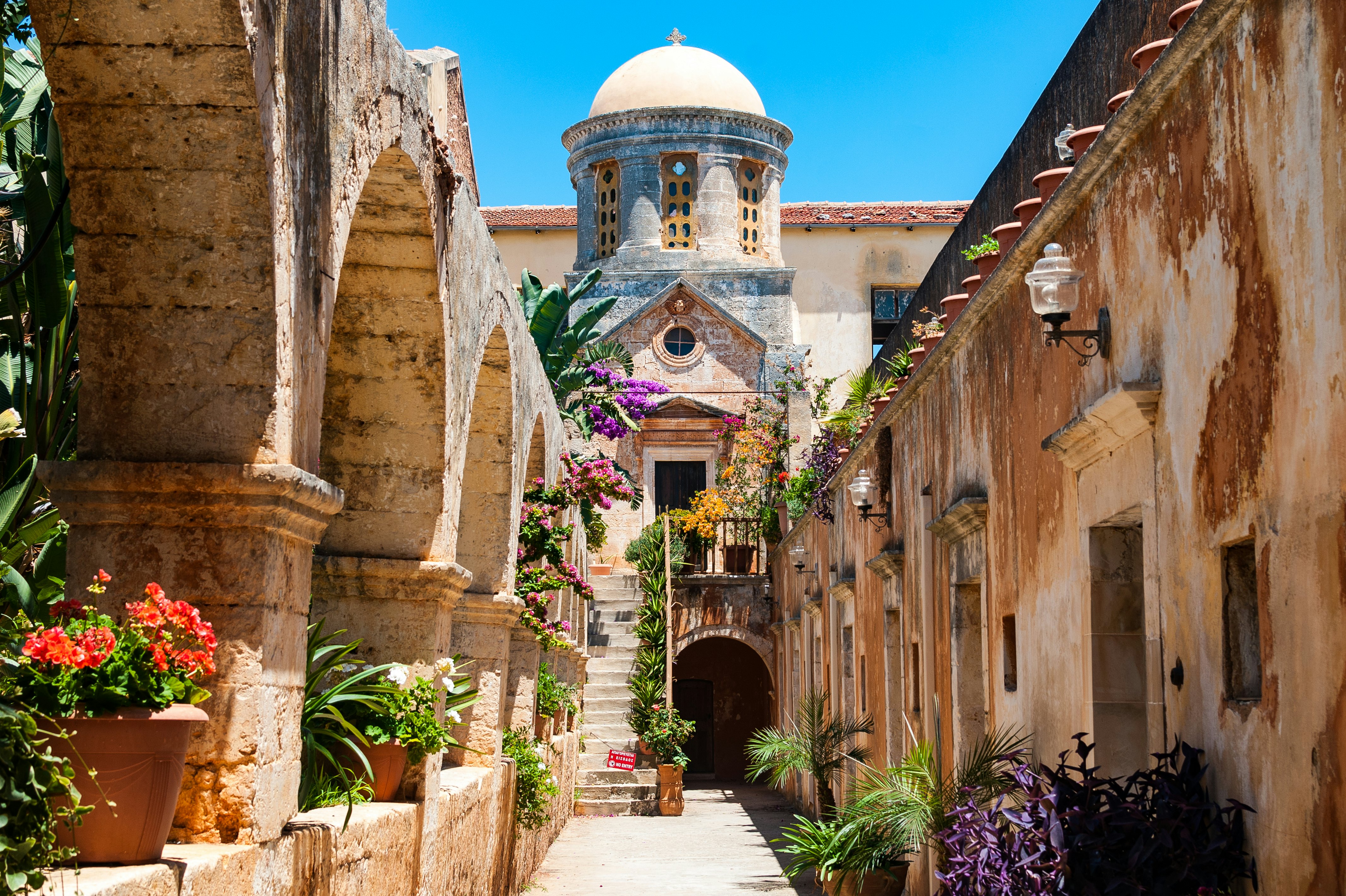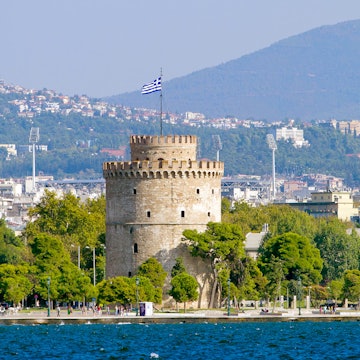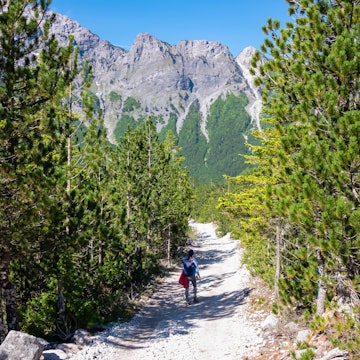

Elounda harbor, Crete. Georgios Tsichlis/Shutterstock
Crete defines easy. This island, filled with myriad experiences, has a well-deserved reputation as a place where you can delight in care-free weeks enjoying beaches, ruins, wonderful cuisine, hiking and much more.
There’s little you need to do to prepare for your trip to this fabulous Greek island beyond making a few advance bookings. Packing is simple – and if you forget something, you can buy it there. The island is safe. The local economy counts on tourists, and the Cretans – like most Greeks – are friendly and welcoming. In any business where tourists turn up (which even includes tiny family-run eateries hidden away high in the hills), someone will speak English. A little common sense and politeness will go a long way as you navigate the customs of the place. To help you plan your visit to Crete, here are our tips on packing, booking, health and safety, and etiquette.

1. Reserve your rooms and rental cars (well) in advance
Crete is one of the Mediterranean's favorite destinations. From April to October, the best places to stay at all price levels book up early. Don’t wait, expecting prices to fall. They won’t.
This is even more true for rental cars, where demand is always high as there is so much of this long and mountainous island to explore. If you’re driving the entire time you’re Crete, shop around and reserve the best deal you can find. One exception: if you’ll just be hiring a car for the occasional day trip, you can wait until you’re there and then arrange for a day rental with a local outfit. (Keep in mind that this may be a friend of the hotel owner with a fleet of three Fiats.)
2. Know your season before you pack
Images of sun-drenched beaches and balmy nights in cafes underpin Cretan tourism clichés. But outside of summer, it’s not always warm. Winter can be blustery, chilly and wet. Nights outside of July and August can be brisk, when winds from the north blow down across the Aegean. Bring layers. Note that Cretans love their outdoor cafes and tavernas so you'll find a few terrace heaters, but mostly there'll be hardy souls ignoring the cold and enjoying the night in a month like February.
3. Bring some cash
Visa and Mastercard are widely accepted for purchases large and small, and ATMs are common on Crete. But you might encounter offline machines or cash-only vendors, so carry about €200 (US$225) in cash in various smaller denominations. Don’t be that person who hands the elderly ex-fisher running the beach ferry a €50 (US$57) note for a €5 (US$5.70) fare.
4. Download maps to your apps before you drive
Most map apps allow you to download data in advance that allow for navigation when your phone is offline. This can be a lifeline when you’re at the junction of two unmarked roads deep in the mountains with no cell phone signal and you don’t know which way to turn.

5. Cover up in churches and religious buildings
Letting it (almost) all hang out is fine on many beaches (there are a few completely nude ones on the island), but when you’re stopping into Crete’s many historic, incense-filled churches, show your respect by dressing modestly. Cover your shoulders, have shorts or a skirt that goes below the knees, and never enter barefoot.
6. Maintain some modesty away from the beach
On this island – with designated nude areas and where women often go topless – locals fully expect the clothes to fall away from their beach-loving visitors. However, you should exercise some discretion near town centers and along beach promenades, where polite exposure maintains a shred of modesty. In some places, such as a bar-heavy beachside village, swimwear might be fine, but in others, covering up with a sarong would be more appropriate. When in doubt, check out the prevailing fashion around you (or lack thereof).
7. Stay stylish and cool at night
Balmy nights call for airy, floaty frocks – yet don’t expect to get into that cool cafe, top restaurant or heaving club with a singlet and short shorts. Longer shorts and dresses are good almost anywhere at night; a crisp designer T-shirt or something with a collar will work for men.

8. Book a table
The best places to eat, and not even the most expensive, get mobbed on summer nights. Avoid disappointment and book a table if possible. Tavernas and restaurants welcome the chance to plan for the evening ahead and always seem to treat diners who book ahead with just a smidge more reverence. It's easiest just to stop by the establishment in person to make your booking if that's convenient, otherwise call. Don't count on an email leading to a table reservation.
9. Expect long and languid dinners
Crete has some of the best food in Mediterranean Europe. Meals are an event – and can extend over two or more enjoyable hours. Friends share dishes large and small, which are served to the entire table, family-style. On busy summer evenings, restaurants get slammed and courses may meander out of the kitchen after long gaps. Trying to hurry things along is bad form and the antithesis of a lovely, relaxed night out.
In contrast, lunch can be enjoyed quickly at a cafe or savored for an afternoon, especially at a seaside taverna, where a shady table and fresh seafood is the ideal antidote to the scorchingly hot midday sun.
10. Be sure to tip – but don’t overtip
As an island with a huge tourism industry, Crete has more of a tipping culture than more un-touristed parts of Greece. In restaurants and cafes, 5% is a good median amount, with 10% very generous. Locals will round up to an even number in a restaurant (eg leave €35/US$40 for a tab of €33/US$37) or leave small change in a cafe.
Leaving some euros for your room cleaner is always appreciated, €1 to €2 (US$1.15 to US$2.30) a day is good. If someone helps you with your bags, €1 to €3 (US$1.15 to US$3.50) per bag is appropriate – unless it’s a taxi driver, in which case the bag handling fee is added to the fare. You only need to tip a taxi driver a couple of euros at most.

11. Pay the asked price
Outside of open-air markets, bargaining over prices is not the norm in Crete or Greece. Expect to pay the marked price in shops and galleries.
12. Drink the water
Tap water in Crete is safe to drink. Remember to refill your water bottles whenever you can, as it gets scorching in summer. You’ll need plenty of hydration for the beaches, hiking trails, bus and car rides, and more.
13. Don’t stress about crime
Crete is a safe place to travel and you shouldn’t lose sleep over the risk of crime. As anywhere, though, the usual common sense should always prevail: lock your doors, don’t leave valuables in the rental car and never leave your phone or other treasures unattended on a beach or at a cafe.
14. Be prepared for mosquitoes
Mosquitoes buzz about ceaselessly at dusk. If you like anti-bug sprays or balms, bring them with you – repellents are surprisingly difficult to find on Crete. Mosquito coils are widely available, as well as electric gizmos that plug into the wall of hotel rooms. But the efficacy of these methods is variable at best.
















